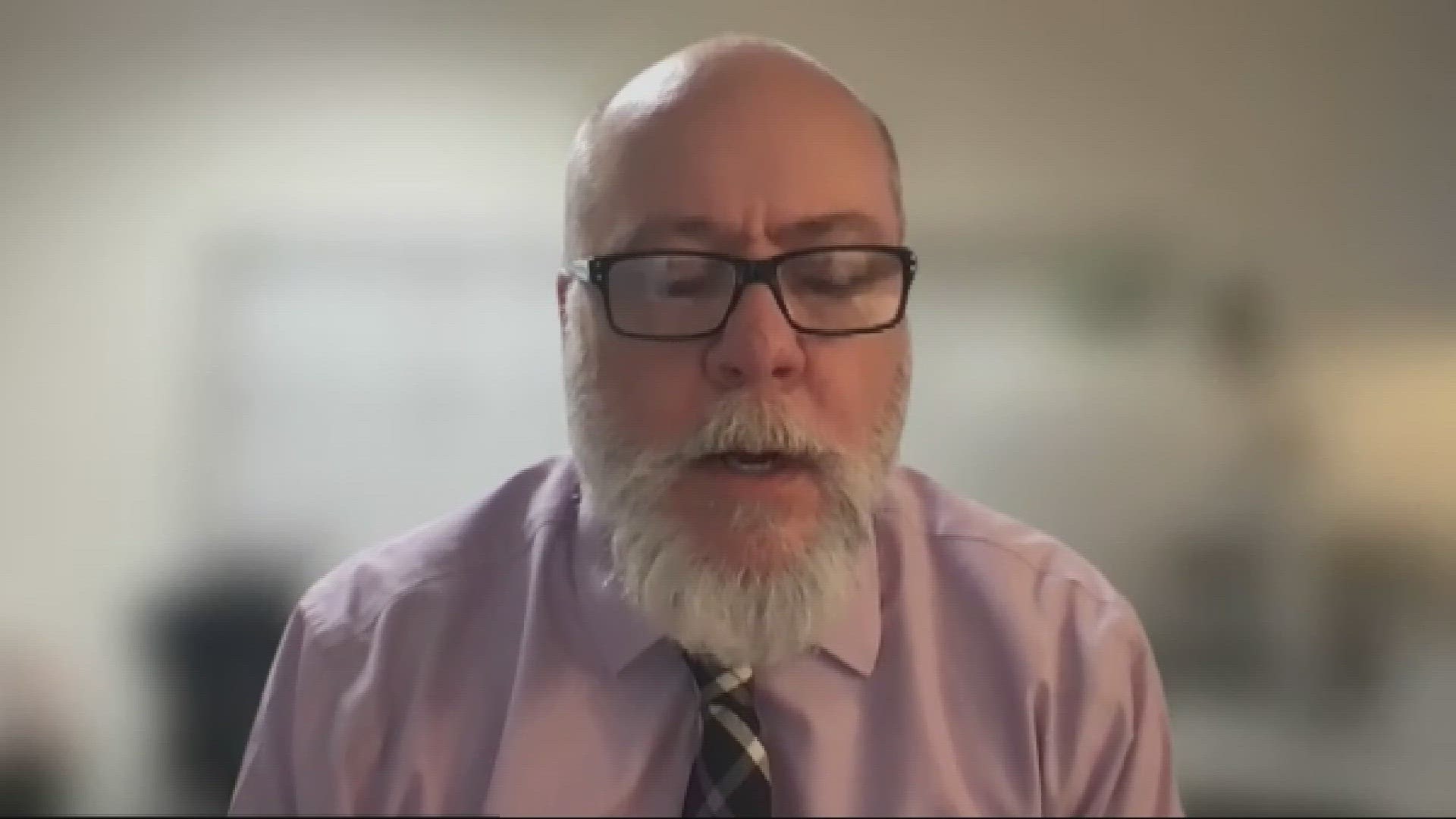HILLSBORO, Ore. — Disability Rights Oregon and the ACLU filed a lawsuit Monday against Washington County and its 911 dispatch agency for violating the ADA and Rehabilitation Act, following a year-long investigation into how the county responds to people experiencing a mental health crisis.
The lawsuit alleges that responses to mental health emergencies fail to meet the needs of people in crisis, increasing the risk of harm and leading to adverse outcomes for people with mental health disabilities.
One of the cases highlighted in the 60-page document is the experience of Joshua Wesley, a man with diagnosed PTSD and depression, with a history of suicidal ideation. In October 2022, while having suicidal thoughts, the 27-year-old called a crisis line and asked for help, specifically for a mental health professional to respond, and not law enforcement officers.
However, according to the lawsuit, dispatchers with the Washington County Consolidated Communications Agency sent deputies to his residence. Eventually, they placed Wesley under a peace officer hold, but did not provide on-side psychiatric assessment, stabilization or treatment, nor did they request assistance from other mental health crisis services available in the county.
While at a local hospital, Wesley — actively experiencing suicidal ideation — walked out of an unsecured room and attempted to grab a deputy's gun, while repeating, "let me kill myself," court documents claim. A deputy then stabbed Wesley, according to an attorney for Disability Rights Oregon.
"He was having a psychiatric crisis. He asked that they not send law enforcement, and that's not what happened. They sent the law enforcement response," said Dave Boyer, managing attorney for Disability Rights Oregon. "You know, he's very agitated. They took him to the emergency room and in the emergency room, he made a decision that he wanted to end his life; the quickest way possible for that to happen was to grab at the deputy's firearm and the deputy stabbed him with a knife."
Wesley is now named as the plaintiff in the lawsuit, which details other cases in the county where deputies or officers responded to mental health emergencies, which ended in trauma, arrests, or criminal charges for the people in crisis.
"The bottom line is that people in mental health crisis need a mental health provider, and Washington County is not doing that," Boyer said. "It's a pretty simple remedy we're looking for. We're just looking for the appropriate response to a mental health crisis, which is mental health providers, not police."
Washington County sent KGW a statement in response to the lawsuit:
Although Washington County has a policy of not commenting on legal matters where the County is named in litigation, we’re committed to providing professional and compassionate mental health services to community members experiencing a mental health crisis. For more than two decades, we have worked diligently with our partners and stakeholders to develop a system of care to address these deep and complex needs.
The Washington County Behavioral Health Crisis Line has been operating for over 20 years. Additionally, for the past 18 years, Washington County Behavioral Health has provided a behavioral health Mobile Crisis Team (MCT) that responds to behavioral health calls that come in to the Crisis Line, 24 hours/day. In 2022 alone, crisis clinicians responded to over 2,100 calls.
Thirteen years ago, Washington County created the Mental Health Response Team (MHRT) Program which includes specially trained deputies paired with mental health clinicians that respond to behavioral health calls. From 2019-2022, the team responded to over 12,000 calls for help. The MHRT program has been so successful—not only in crisis intervention but also in safety planning and diverting people from the criminal justice system—that several city police departments in Washington County now participate in the program as well.
Washington County has been working with the ACLU and Disability Rights Oregon (DRO) for the last two months on ways to address their concerns regarding behavioral health calls to 9-1-1 and avoid litigation. We are disappointed that the ACLU and DRO decided to file a lawsuit which we learned of today through the media.
If you or someone you know is in a behavioral health crisis please call 503-291-9111 or 9-8-8.

